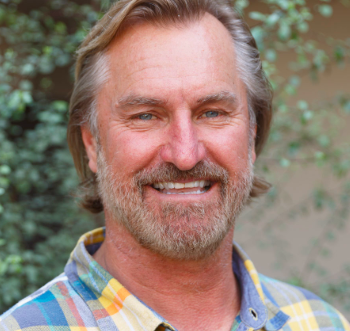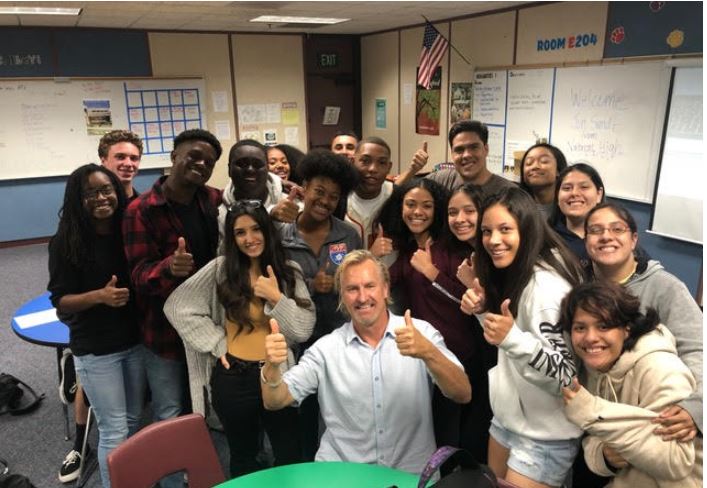Conversations surrounding addiction and drug abuse can be tricky and sensitive to navigate, especially when it comes to educating kids. Following the loss of his two brothers to drug addiction, Jon Sundt founded the drug abuse prevention nonprofit Natural High—and he’s made it his life’s work to broach these topics by encouraging people, especially kids in school, to find their own “natural highs.”
“Laughter, sports, family, love—when kids understand these feelings, these things that you do, they’ve produced a natural high from the inside out. It’s not from the outside and something [that] you have to put in your body,” Sundt tells SPIN. He adds, “Obviously, one of the greatest, biggest natural highs is music.”
Sundt was inspired to create a program that he could bring into schools, families, and communities, where he felt he could engage youth to dispel the myths surrounding drugs and alcohol. Natural High began as Sundt traveled to schools with local influencers and a slide projector, hoping that his personal story could save even just one person from a similar tragedy.
“I realized that, to really reach kids, you’ve got to get to them through their heart and their mind,” Sundt says. “You’ve got to get to them through a story that touches them, and the best way to touch kids with story is to find people that they look up to and they’re interested in.”

Also Read
SPIN First Drop: Adam Ten & Mita Gami

Since its inception in 2000, Natural High has worked with various “storytellers,” including influencers, athletes, and musicians who have been impacted by addiction, and most recently with singer-songwriter Colleen D’Agostino. The platinum recording artist is just one of many musicians who Sundt has worked with, and they share their own addiction stories as videos via the nonprofit’s website and educational presentations. For D’Agostino, just two weeks after scoring a gold-certified record with DeadMau5, her father passed away from alcohol addiction.
“I think anything that we can do to bring outreach and bring awareness to the subject is going to help, maybe not just you but maybe somebody you know,” D’Agostino says in her video for Natural High. “If you know somebody who is struggling, just be aware that people need help, and you could be that person.”
Sundt acknowledges that the culture and history of music has often been steeped in glorifying dangerous lifestyles, pointing out the ongoing fentanyl crisis that has impacted various musicians and the enduring “sex, drugs, and rock ‘n’ roll” motto and lifestyle. With this, Sundt understands that while some musicians don’t actually carry out these lifestyles they sing about, and thinks such songs that uplift these attitudes should not be pushed out to influence kids, others are actually singing about their own experiences with addiction. Through Natural High, Sundt attempts to help kids distinguish such meanings and stories in song lyrics, while embracing the “natural high” music can offer.
“Music is a common language, of course, culturally,” Sundt says. “You can read the headlines over the course of the last 36 months. How many people have died from fentanyl? Young people are going to music and consuming music because it gives them a natural high. You don’t need this unnatural high; this stuff that can destroy your life.”
After watching D’Agostino’s story, or any of the influencer’s on Natural High’s website, there are discussion questions and activities for kids—or anyone watching—to reflect on. Sundt continues to call on influencers or anyone with a similar story to share them through Natural High, and he encourages parents and teachers alike to expose kids early on.
“We tell parents, sit down once a week and have your kid pick out one of the storytellers on the Natural High platform, and just watch it with them,” Sundt says. “Do that for six or eight weeks, and it may very well resonate. Prevention is like little nudges, and all of a sudden you’ve corrected the path.”




